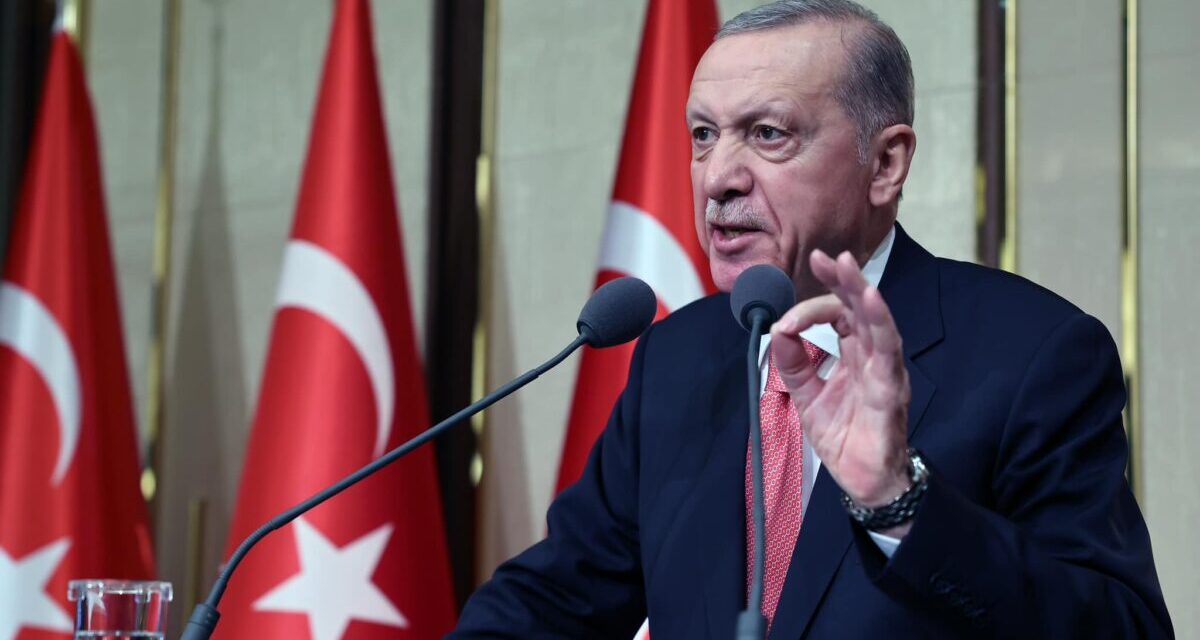Both the Turkish and Polish local government elections brought opportunities rather than problems for the forces allied with Fidesz. Written by Mátyás Kohán.
"Orbán's Turkish role model has hit hard" - this domestic headline would have been included in the coverage of the local elections in Turkey a few weeks ago. However, it was born in 2015, after the then parliamentary elections. In the accompanying article, Devlet Bahçeli, the president of the National Action Party (MHP), is quoted as saying that the 41 percent election result is "the beginning of the end" for Recep Tayyip Erdoğan.
This "end" has continued ever since, and the MHP is now an ally of the Erdoğans.
The ruling Justice and Development Party (AKP) drew inspiration from its victory at the time, which was undoubtedly smaller than expected, and laid the foundation for its unbroken governance ever since.
At first glance, there is not much good for President Erdoğan in the results of this year's local elections in Turkey, there is no doubt about that. The main opposition party, the Republican People's Party (CHP), took no less than ten provinces from them, another two from the current party of the Kurds, and six from other right-wing parties – the latter typically means religious Muslim forces in Turkish politics. And they themselves took only one province from the CHP, Hatay, which was hit by last year's earthquake.
(Really, how much truth was there in the press narratives about the government's outrageously bad handling of the disaster! One of the big surprises of last year's presidential election was that the areas affected by the earthquake, say Kahramanmaraş, remained with the president with a result of around seventy percent.)
Two provinces in northern Anatolia, Bayburt and Karabük, were taken back from other right-wing forces, so their net balance is not very impressive, minus fifteen.
But that's just the surface. Deep down, tectonic changes have taken place that the AKP can be proud of: the whole of Turkish politics has shifted to the right, towards Islam, and the secret of the CHP's current success is in no small part that it is trying with all its might to eliminate the spectacular differences between it and the Erdoğans. in the attitude towards religion.
Its candidates showed up quite often in mosques, at morning prayers. Thus, while the secular urban voters who were adamantly anti-Erdoğan remained the leading force of the opposition for lack of a better alternative, the originally secular Kemalist party became available to the masses of conservative religious voters in Inner Anatolia.
This explains the advance of the opposition in Anatolia and on the Black and Mediterranean coasts. And the results in Istanbul and Ankara, which were hyped to death in the media, really do not need to be explained, here the Erdoğans failed to manage expectations - the demographic fundamentals of politics simply did not in any way allow the largest, richest and most western Turkish cities to turn into the not-so-rosy economic situation of Turkey. government side.
Speaking of the economic situation: what is not explained by the CHP's new Muslim image in the results of the AKP, is explained by the fact that the recently due increase in pensions in Turkey, which has an increasingly broad pension society, was well below inflation.
This means that for a huge group of 27 percent of voters, inflation, which in itself only caused economic insecurity, turned into a drop in real wages that brought concrete deterioration in the quality of life, which prompted quite a few conservative retired voters to stay at home or to vote directly for the right-wing opposition; and the two new Kurdish-led provinces prove that
compared to the situation five years ago, Turkey has not only become older, but also Kurd.
So this time, the economic factors and the fundamentals were against the Erdoğans - and this turned out to be a straitjacket, as a result of which the opposition now has control over the regions that contribute 78 percent of the country's GDP, they can build the local clientele that is perfectly customary in Turkish democracy, a base for the following for the presidential election. At the same time, this is the perfect moment of renewal for the president's party, and Erdoğan seems to be on track in this regard: he identified that the party that has been ruling for several decades has moved further from the citizens than is ideal,
"he lost blood and soul, not just votes", and a solution must be sought in this direction, otherwise "we will continue to melt like ice in the sun".
Decades of governance causes difficulties in being likable and close to people, and inevitably portrays the party as a philistine power elite, which since 2016 has certainly not been blameless in the country's economic crisis, even if it had a lot to do with the unprecedented recovery before it; but this situation has been spectacularly noticed by the president, and it seems that he has the strength for renewal, which will culminate in a new presidential candidate by 2028.
Both the signaling power of Turkish democracy and the democratic political instincts are alive and well in a party that is said to be authoritarian in many places.
Meanwhile, over the weekend in Poland, Donald Tusk, who governs with confidence feigning total social support, found out: his political successes stem solely from the skillfully assembled electoral coalition,
but he himself is still only supported by less than a third of Polish society, and his party is beaten even by Law and Justice, which has been in a strange state since the elections. Millions of young Poles who voted for change last fall have now stayed at home, reinforcing the notion that the huge turnout last fall was the result of a single successful campaign, and not a reflection of fundamental changes.
In addition, the result in Tusk, which is much more modest than that of PiS, came out in such a way that it already included a good part of the voters of the Polish left, which is under Salamization - the leftists lost a third of their voters and almost half of their seats in the Voivodeship General Assembly.
If this is the "beginning of the end" for someone, it would rather be them, and thus one of the important elements of the three-legged Tusk coalition is slowly melting away.
And a narrative popularly used in both Poland and Hungary, according to which the success of the right wing is solely due to the propaganda fertilizer fed to the mushrooms that voted for them, was also challenged. In the last six months, Polish public television has made a 180-degree political turn in a way that cannot be called elegant at all, so PiS won this election without being accused of maintaining any kind of propaganda network maintained with state money.
What is the lesson?
That the reports of the deaths of our allies are greatly exaggerated.
Our friends are not spectacularly imbeciles. Both the Turkish and Polish local government elections hold more opportunities than challenges for the forces allied with Fidesz.
In the economic situation that will improve in the next four years, Erdoğan's party can carry out the self-reflection resulting from the lessons learned now, with a certain amount of satisfaction that, as an era-shaping political factor, they have managed to substantially push the center of Turkish politics to the right and persuade their opponents that if they want to win, they should try the AKP- to be more like him.
And in Poland, the PiS managed to find itself spectacularly in record time after their shocking defeat last year; their organization, their cohesion, and the trust of their voters - all three are very much measured by a local government election - have not fallen apart, there is no trace of the multi-year wound-licking process visible in the Hungarian opposition.
Democracy is a beautiful, sensitive genre capable of giving strength to renewal.
Cover photo: Recep Tayyip Erdoğan
Source: Facebook/Recep Tayyip Erdoğan













